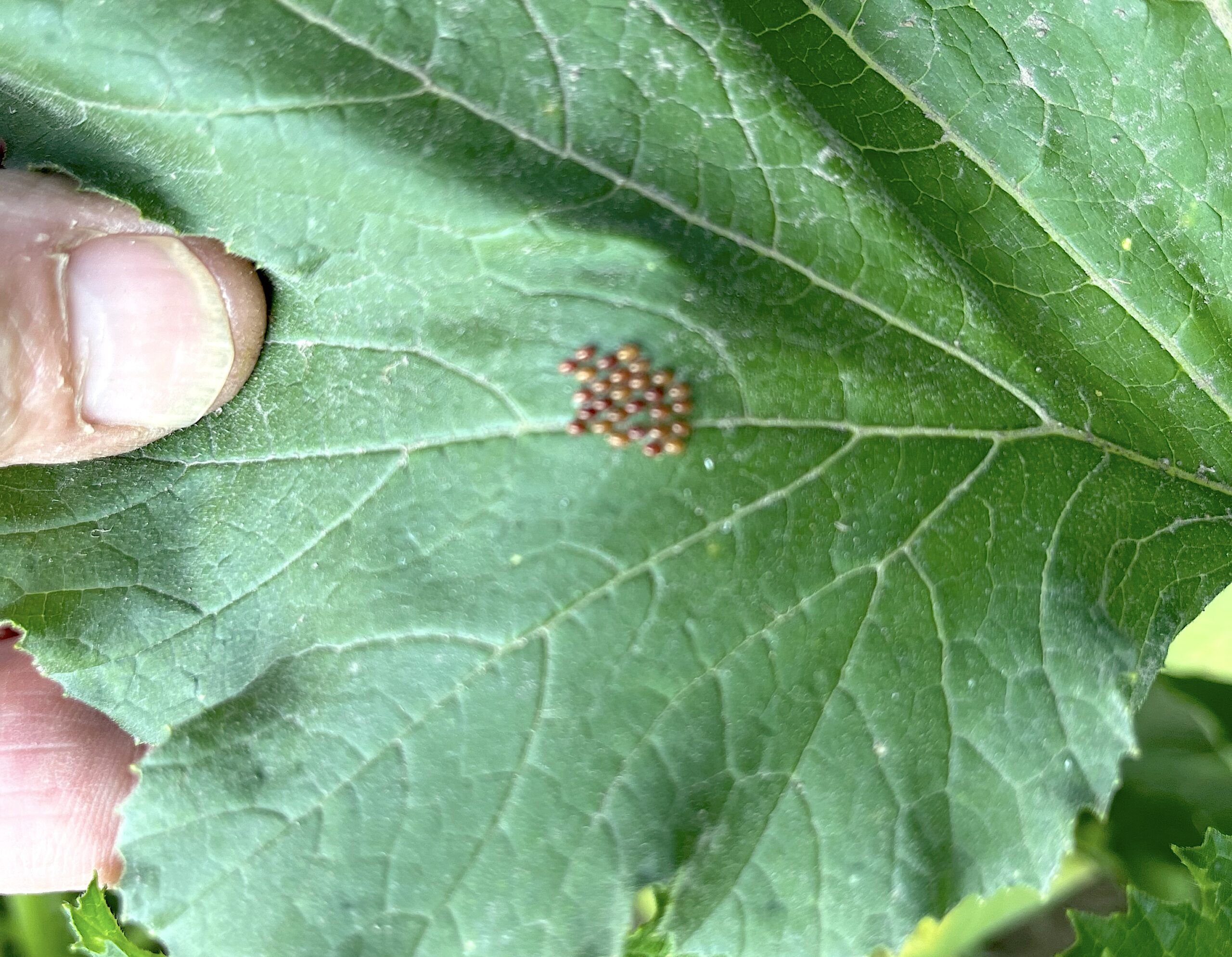The Hort Report: Offering several ways to get rid of squash bugs from your gardens

Many of you should be getting plenty of produce from your gardens now. Some of you should be getting fruit from your berries. We are even getting apples now.
With the increasing humidity and temperatures, you need to be watering before 8 a.m. and after 6:30 p.m. to keep vegetables producing.
The weather has been both good and hard on all our vegetables in the past few weeks. Good, as we couldn’t ask for better overall growing weather, but hard for us who are fighting all the harmful insects attacking our vegetables, fruit trees and berries.
I talked about fighting Japanese beetles a few weeks ago and what you could do to kill them, as well as things to do to break their life cycle in the coming years.
Squash bugs now are the major insect problem many of us are facing. They suck the sap out of leaves with their piercing-sucking mouthparts. Their feeding causes yellow spots that eventually turn brown. The feeding also affects the flow of water and nutrients, and, when severe, can cause wilting.
You can do several things to fight them.
Dust or spray insecticide on cucumber, summer and winter squash and other vining vegetables. Using any type of insecticide that has either cyhalothrin or cyfluthrin will kill squash bugs within a few hours. They are stomach poisons.
These types of insecticides can kill up to 500 different types of insects. As they kill beneficial and harmful insects, they work fast. Decide if you want to use these types of insecticides or organic insecticides.
Using organic insecticides and other types of organic ways will save beneficial insects and kill squash bugs.
Neem oil is one of the best types of organic insecticides. It kills squash bugs in all stages of their life — egg, larvae and adult. It works by getting into the bodies and keeping them from reproducing. It is safe to use for almost all types of beneficial insects.
Mix one tablespoon of Neem oil to one gallon of water, then spray it on all parts of the vegetable plant you are treating. Spray the underneath and topside of all the leaves.
Squash bugs lay their eggs on the underside of leaves. When you spray the underside, newly hatched squash bugs will contact the Neem Oil. They are easier to kill at that size and age. Spraying both sides also kills other squash bugs that might fly onto your plants.
Insecticidal soap can be sprayed on the underside and top side of vegetable plants. It penetrates the shell of squash bugs, allowing pyrethrin to work on the nervous system, paralyzing and killing them within 24 hours.
Diatomaceous Earth is a powder to dust on vegetable plants. The dust gets on the squash bugs, causing them to dry up and die by absorbing the fats and oil from their bodies. The sharp edges in the dust speed up the killing process.
Plain dish soap used in a spray mix can kill Squash Bugs, but you need to spray it on. This takes longer to kill them.
The problem with all the above-mentioned ways of killing squash bugs is that water will wash away Neem oil, insecticidal soap, Diatomaceous Earth and dish soap.
You can simply hand-pick squash bugs and either put them in soapy water or crush them.
Next year, I plan to plant radishes, dill, catnip, onions, garlic and nasturtiums several weeks before planting my vining vegetable plants. They help repel squash bugs.
Pull all weeds and dead plants after harvest to take away a place for squash bugs to stay over the winter. The life cycle is broken, going into next year.
I appreciate all of your questions in the past and look forward to them in the coming weeks. Contact me at Shelby County Implement at 573-588-2040, sci63468@hotmail.com or on Greenwell’s Greenhouse Group on Facebook. Better yet, come see me. I like it when you stop me anytime and just ask.
Here’s hoping you are enjoying the produce you are getting.

Pat Greenwell is the owner of Shelby County Implement in Shelbina, Mo. He was a high school agriculture teacher for 11 years. He has taught adult vocational agriculture since 1987. He also is a research assistant at the Truman State University Ag Department Farm.
Miss Clipping Out Stories to Save for Later?
Click the Purchase Story button below to order a print of this story. We will print it for you on matte photo paper to keep forever.

